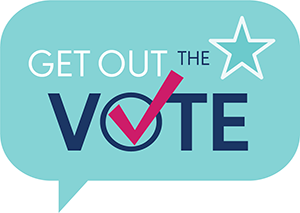Voting is a powerful tool that allows individuals to influence decisions that shape their community, state, and country. It empowers citizens to have a say in critical issues like education, healthcare, and economic policies. By casting a vote, people can advocate for the changes they want and hold elected officials accountable. Voting also ensures that diverse perspectives are represented, contributing to a more inclusive society. Every vote matters in determining the course of events, whether they be municipal or national elections. Making your voice heard through voting is essential to civic responsibility and democracy.
Why Every Vote Matters
Voting is an essential civic duty and a cornerstone of democratic societies. Each vote can influence the outcome of elections, making it a pivotal element in shaping the country’s future. The influence of voting extends beyond national elections to include state and local levels, where decisions directly impact community policies and development. Consider the 2000 U.S. Presidential Election, famously swayed by a mere 537 votes in Florida, illustrating how impactful each individual’s voice can be.
Understanding voting laws is crucial to facilitating informed participation. While having state-specific nuances, these laws uniformly uphold the principle that every citizen’s vote matters. Whether deciding on leadership roles or policies, participating in elections empowers citizens to steer national and local directions toward their vision of progress and justice.
A Brief History of Voting Rights
The journey of voting rights in the United States is a narrative of persistent advocacy and societal change. Initially, the voting franchise was limited to white male property owners, but over the years, this exclusion was challenged and reformed through relentless activism. Constitutional amendments like the 15th Amendment, which gave African Americans the right to vote, and the 19th Amendment, which gave women the right to vote, brought about fundamental changes. A significant turning point was reached when the Voting Rights Act of 1965 prohibited discriminatory actions intended to deny voting rights to racial minorities. These historical milestones reflect the ongoing commitment to achieving equity and more excellent representation in the electoral process.
Current Challenges in Voting
While progress has been made, the path to unimpeded access to voting needs to be improved. Voter suppression tactics, such as gerrymandering and stringent voter ID laws, often disenfranchise disadvantaged groups. The digital age presents additional complexities, including misinformation campaigns and cybersecurity threats that undermine confidence in the electoral system. Staying informed is crucial to navigating these challenges effectively. Resources like BBC News provide insights into ongoing efforts to protect and enhance voting rights, ensuring all eligible citizens can participate in this foundational democratic process.
Impact of Voting on Local Communities
The influence of voting is particularly profound at the local level, where it directly impacts resource allocation, policy-making, and community development. Local elections determine critical issues such as school funding, public safety initiatives, zoning regulations, and infrastructure projects—matters that shape the day-to-day experiences of residents. By actively participating in these elections, citizens are pivotal in steering decisions that meet their community’s unique needs and priorities. This form of civic engagement empowers individuals to influence their surroundings, ensuring that the government’s actions align with the collective voice of its people. Ultimately, such involvement strengthens the democratic fabric of the community, fostering a more responsive and accountable governance system.
The Role of Technology in Voting
Technology is revolutionizing the voting process, making it more accessible and engaging for voters. Online voter registration systems and electronic voting machines streamline the electoral process, creating a faster and more efficient experience. However, these innovations also introduce challenges, particularly around data security and equitable access. Protecting voter information with robust cybersecurity measures is crucial to maintaining trust in these systems while ensuring the technology remains user-friendly for all demographics. Balancing these concerns is vital in fostering democratic participation in the digital age. For more insights into how technology influences democratic engagement, CNN’s tech section offers a detailed analysis of these emerging trends.
Increasing Voter Awareness
Boosting voter awareness is vital for increasing election turnout and fostering civic engagement. Successful campaigns use a mix of education, social media, and influential voices to break down the voting process and emphasize its significance. They often employ engaging storytelling, relatable examples, and clear, accessible information to help citizens understand their rights and responsibilities. By highlighting how voting directly affects personal lives and the broader community, these campaigns inspire people to take an active role in democracy. Empowering voters with knowledge encourages participation and strengthens the overall democratic process by creating informed and motivated voters.
Ways to Encourage Voter Participation
Encouraging voter participation demands a comprehensive approach that tackles logistical challenges and voter motivation. Community-led efforts, such as voter registration drives and providing transportation to polling stations, help eliminate access barriers. Open forums and discussions also play a crucial role by demystifying the voting process, making it more manageable for first-time or unfamiliar voters. Additionally, promoting an inclusive and engaging voting culture can inspire greater involvement. When communities actively foster participation, voter turnout increases, ensuring that elections reflect a broader spectrum of voices. This ultimately leads to more responsive governance and better representation of community needs and interests.
Conclusion
Voting remains a powerful vehicle for change in communities and nations. By actively participating in elections, citizens affirm their role in shaping the societal direction and influencing policy outcomes. Tackling the associated challenges and embracing technological innovations are essential to fortifying the democratic process. Ultimately, a society where each voice is valued, and every vote is cast contributes to a more vibrant and inclusive democratic system where the valid will of the people is realized and respected.





